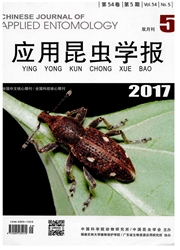

 中文摘要:
中文摘要:
随着DNA测序技术的不断更新和生物信息学的快速发展,昆虫基因组学的研究与日俱增,提高了人们对种群遗传学和进化生态学的理解和认识,促进了对重要农业害虫的适应性和致害机理的研究,为安全、有效、可持续地开展害虫综合治理提供了新思路和新手段。近两年来,全球发布的昆虫基因组数量每年可达30个。在遗传学、生态学和进化论等生命科学基本原理和方法的指导下,基因组学的研究为揭示害虫遗传变异的内在机制、生态适应性策略和种群变动规律提供了重要的数据和信息资源,同时催生了一系列害虫治理新技术和新方法的研发与应用。为了进一步促进和加强基因组时代的害虫治理研究,拓展该领域研究的广度与深度,本文就昆虫基因组的研究,昆虫与植物协同进化模式及其互作机理,昆虫免疫和抗药性分子机制,以及害虫防治新技术等方面进行了综述,旨在为了解基因组时代害虫治理的研究进展及前景提供参考,对进一步改进害虫生态控制的策略和措施也具有指导意义。
 英文摘要:
英文摘要:
The rapid development of DNA sequencing technology and bioinformatics has resulted in an increase in genomic studies of insects. Better knowledge of population genetics and evolutionary ecology has allowed better understanding of the local/global adaptation and infestation mechanisms of key agricultural pests, thereby providing novel strategies and approaches for the implementation of integrated pest management (IMP) in a safe, cost-effective and sustainable manner. Genome information has been released for approximately 30 insect species annually over the past two years. Genomic-related studies of agricultural insect herbivores generate a great deal of important data, and reveal the mechanisms underlying the genetic variation, strategic adaptation, and the population dynamics, of these pests. Such studies, in conjunction with the general principles and methods of classical genetics, ecology and evolution, have facilitated the development of novel technology and tools for pest management. This article is an overview of progress in research on insect genomic researches, co-evolution, the interactive mechanisms betweenplants and herbivores, molecular mechanisms of insect immunity and resistance to insecticides, as well as the development of new techniques for pest management. We believe that this review updates existing information and provides sound prospects for improving the strategies and tactics currently employed in ecologically-based pest management.
 同期刊论文项目
同期刊论文项目
 同项目期刊论文
同项目期刊论文
 期刊信息
期刊信息
